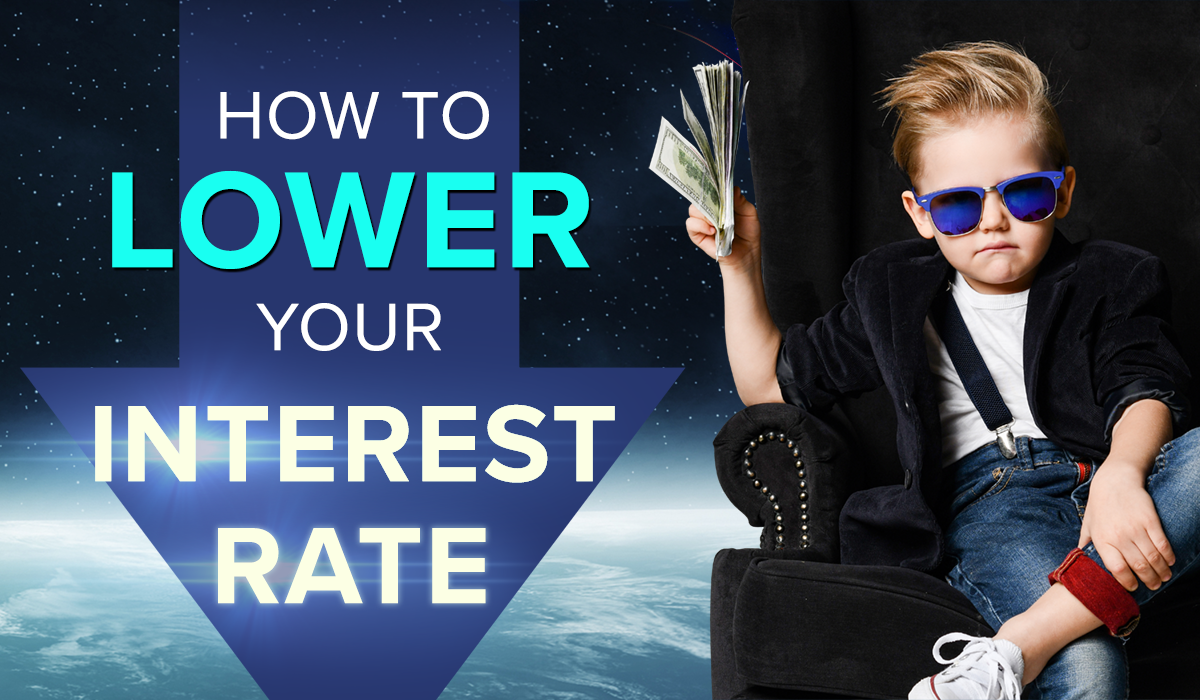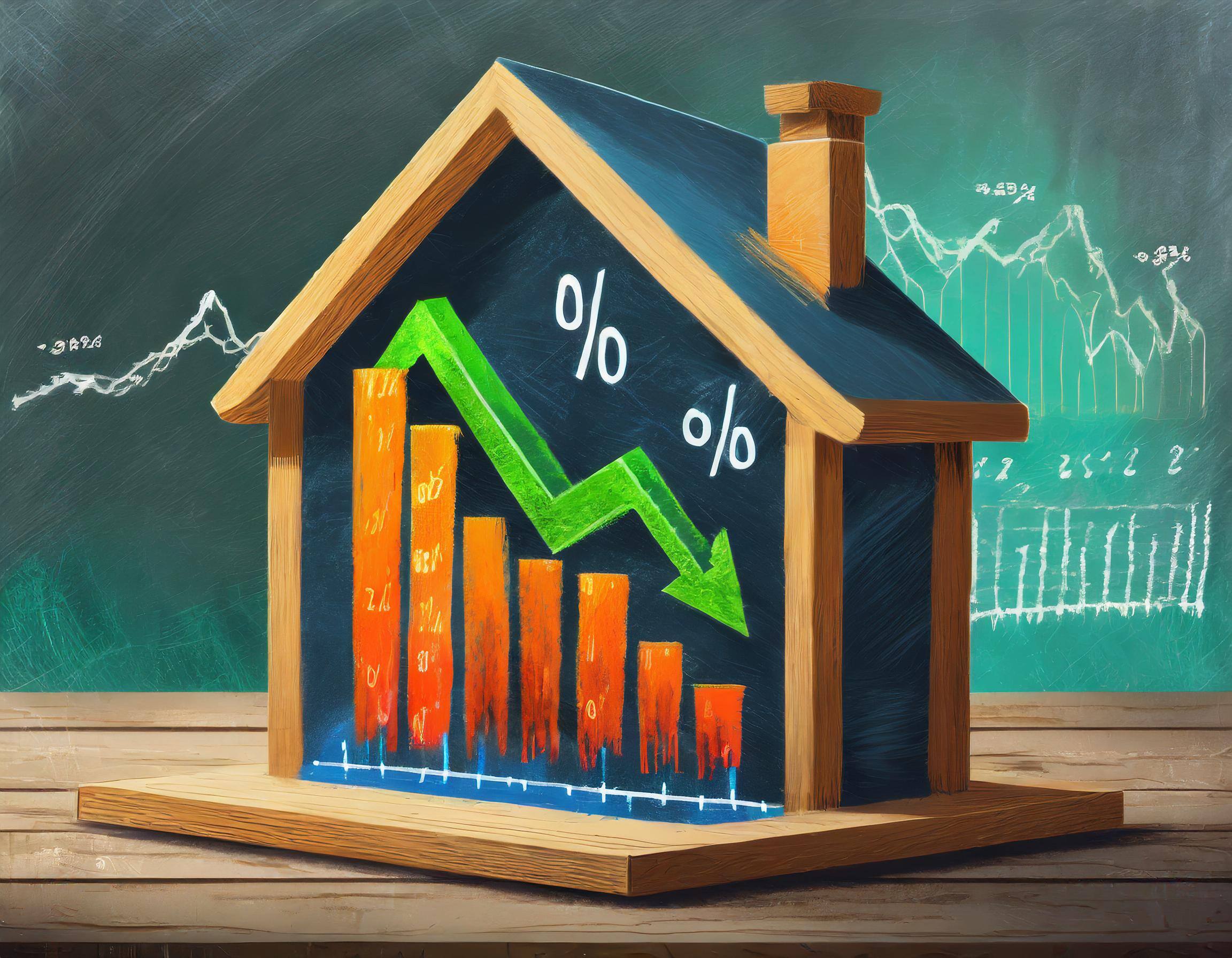Getting the lowest interest rate possible is at the top of most peoples' "mortgage anxiety" list.
Interest rates impact affordability and loan qualifying, so it's natural to be anxious about getting the lowest possible rate. Many people call lender after lender to "shop" interest rates searching for that Unicorn "lowest mortgage rate."
The problem with that strategy is lenders don't have one interest rate for every client. Even if every lender called gives a rate - there's no guarantee you'll receive that rate.
Because many factors, personal to you, will impact your interest rate.
We wrote this article to help you understand the factors you can control and those outside your control. Let's start with what you can't control about getting a lower interest rate.
Factors You Can't Control
Like other financial markets, big and small economic factors impact mortgage rates. They include inflation, job growth, trade issues, the bond market, and the overall health of the global and US economies.
You get the picture. What happens in the World and the US economy has some impact on mortgage interest rates. But there are even factors unique to individual lenders that temporarily impact the rates they offer.
Factors like supply and demand. When rates drop, refinances flood in and lenders become overwhelmed processing loans. They can temporarily raise their rates to slow down new loan applications.
Another factor that can impact rates falls under the category of "Acts of God." This phrase is used in financial markets to refer to unexpected events that negatively affect rates. These include severe weather events, global health events, and catastrophic economic events.
As you're applying for a mortgage, keep these factors in mind, but don't let them dictate whether you move forward. Instead, focus on what's in your control, like the following factors.
Personal Factors Can Impact Your Rate
Does it surprise you to learn that some personal factors can influence the mortgage rate you get? Some concern your history, and some concern choices you have or will make. Here they are:
Credit History + Score
You can work on your credit - and the sooner, the better. Because the higher your credit score, the lower your mortgage interest rate. But making positive changes in your credit score takes time.
Start by reviewing your consumer credit report to check for high balances, late payments, and other derogatory information (collections, judgments, or charge-offs.) Don't worry about the credit score because consumer and mortgage credit scores are different.
Stay focused on correcting errors, paying down balances (a good rule of thumb: under 30% of the credit limit), and making sure you have enough credit. Having little credit history will negatively impact your score, too.
Down Payment, Loan Amount, Purchase Price
Why do these three things impact mortgage rates? They're "risk factors" lenders consider when evaluating a loan application. The higher the risk for a lender, the higher the interest rate required to compensate.
The size of a down payment as a percentage of the purchase price impacts the risk to the lender. A borrower making the minimum down payment allowed has less risk than the lender if they can't make their payments in the future. A larger down payment spreads the risk between the borrower and lender.
The risk also increases for the lender as the loan amount increases. It's simple - the bigger the loan, the more significant the loss if the borrower defaults on the loan. And, with higher purchase prices, loan amounts are typically higher—all adding to the lender's risk.
Loan Term + Type
Loan term refers to the number of years to pay back the loan. The most common amortization periods are 30 and 15 years, but 25, 20, and 10-year amortizations are available.
The shorter payback periods carry lower interest rates. However, shorter amortizations mean a higher monthly payment. A 30-year mortgage provides the lowest monthly payment and gives the option to pay extra toward the mortgage balance when and if you decide to.
The type of mortgage also impacts rates. Adjustable-rate mortgages start with lower interest rates than fixed-rate mortgages. But once the mortgage begins to adjust, the rate can increase. Your Point Equity loan officer can explain more about adjustable-rate mortgages.
Before choosing one, make sure it aligns with your timeline for owning the property. If there's a shadow of a doubt you'll hold it for longer than the initial fixed-rate period of the adjustable - consider a fixed-rate mortgage for the peace of mind.
Locking In The Rate
We've explained how risk affects the interest rates lenders offer, and locking in a rate is all about risk. This time, the risk is about who's protected from economic and market factors that move interest rates.
When you lock an interest rate, no matter what happens to mortgage rates or the economy, as long as you close your loan within the lock period - you will get that interest rate.
On the other hand, the lender assumes the risk that rates may move during the lock-in period. So, more extended lock-in periods are automatically higher rates - to compensate the lender in case the market "goes south" during the lock.
How rising rates impact lenders is a longer explanation. For now, it's enough that you understand why the rate is higher for extended lock-in periods. Typically, you can lock in a rate for 30 days (and sometimes 45 days) to get the lowest rate. But if you lock for 60 days or even 90 days, the rate will be higher.
Property Type, Use, and Location
An essential factor to consider before you look for a home is property type. The lowest rates are available for owner-occupied, single-family homes and increase for duplexes to 4-units. (5+ units are considered commercial properties.)
Rates are higher for vacation homes and even higher for rental properties. Again - it's all about the risk. Historically, people facing financial difficulties try harder to continue paying the mortgage on their home than for a vacation home or rental property.
The property location may also impact the rate, including rural versus urban properties and properties with excess acreage. But areas with higher than usual default ratios can earn higher interest rates regardless of the buyers' situation.
Extra Options to Lower Your Rate
One more way to get a lower rate is to pay extra money to "buy down" the interest rate. This is known as "paying points," and one "point" is equal to one percent of the loan amount.
Points are prepaid interest. Lenders will lower the rate in return for interest paid upfront. You'll need to check with your Point Equity loan officer to calculate the amount of prepaid interest required to lower the rate and by how much.
Is paying points a good idea if: your credit score and history are good, you're making a substantial down payment (above 20%), you're buying a primary residence, single-family home, and you're locking the rate for 30 days? Again, you'll need to meet with your loan officer to get the answer.
Why would you consider paying points? The answer depends on the cost of the points, the amount it will lower your monthly payment, your excess cash, and how long you plan on owning your home. But it's definitely worth considering.








